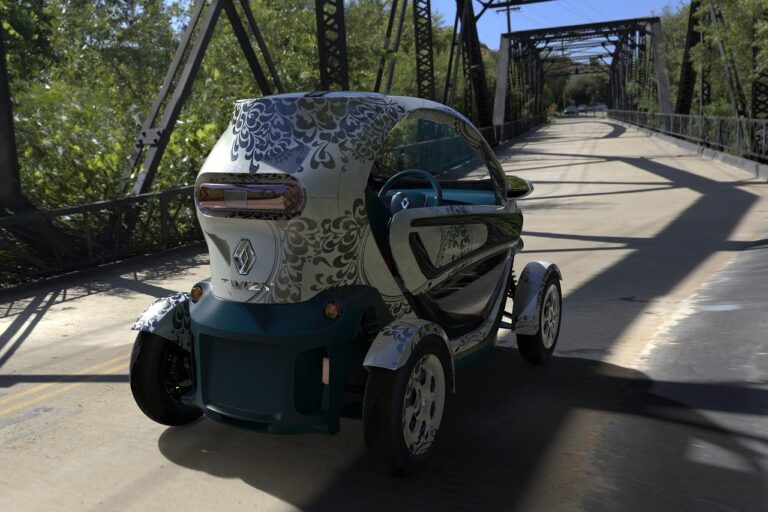The Influence of Battery Innovations on Vehicle Range Extension and Fast Charging
betbhai9 registration, radheexch/admin, my 99 exch:The Influence of Battery Innovations on Vehicle Range Extension and Fast Charging
In recent years, the automotive industry has seen significant advancements in battery technology that have had a profound impact on the range and charging capabilities of electric vehicles. As automakers and battery manufacturers continue to innovate and push the boundaries of what is possible, we are witnessing a rapid evolution in the way we think about electric vehicles. This article will explore the influence of these battery innovations on vehicle range extension and fast charging.
The Evolution of Battery Technology
Battery technology has come a long way since the early days of electric vehicles. In the past, most electric cars were powered by lead-acid batteries, which were heavy, bulky, and had limited range. However, with the development of lithium-ion batteries, electric vehicles have become more practical and desirable for consumers.
Lithium-ion batteries are lighter, more energy-dense, and have a longer lifespan than lead-acid batteries. This has allowed automakers to significantly increase the range of electric vehicles, making them viable options for everyday use. In addition, advancements in battery management systems and thermal management technologies have improved the efficiency and charging capabilities of lithium-ion batteries, further enhancing the performance of electric vehicles.
Range Extension
One of the key benefits of battery innovations is the extension of vehicle range. As battery technology continues to improve, automakers are able to offer electric vehicles with longer driving ranges, reducing range anxiety and making them more appealing to a wider range of consumers. For example, Tesla’s Model S Long Range has a range of over 370 miles on a single charge, making it one of the longest-range electric vehicles on the market.
Battery innovations such as higher energy density and improved thermal management have played a crucial role in extending the range of electric vehicles. By increasing the amount of energy that can be stored in a battery and optimizing its performance in various driving conditions, automakers are able to offer electric vehicles with greater driving ranges without compromising on performance or efficiency.
Fast Charging
In addition to range extension, battery innovations have also led to improvements in fast charging capabilities. Fast charging allows electric vehicle owners to recharge their batteries quickly, making long-distance travel more convenient and practical. With advancements in charging infrastructure and battery technology, electric vehicles can now be charged to 80% capacity in as little as 30 minutes, making them competitive with traditional gasoline vehicles in terms of refueling times.
One of the key factors influencing fast charging capabilities is the development of high-power charging stations that can deliver large amounts of electricity to a vehicle’s battery in a short amount of time. These charging stations, combined with advanced battery management systems that can handle high charging rates, have made fast charging a viable option for electric vehicle owners looking to quickly top up their batteries on the go.
The Future of Electric Vehicles
As battery technology continues to evolve, we can expect to see even greater advancements in vehicle range extension and fast charging capabilities. With ongoing research and development in areas such as solid-state batteries, battery recycling, and wireless charging, the future of electric vehicles looks bright. As automakers and battery manufacturers continue to push the boundaries of what is possible, we can look forward to a world where electric vehicles are not only practical and convenient but also environmentally friendly and sustainable.
FAQs
Q: How do battery innovations impact the cost of electric vehicles?
A: While battery innovations have led to improvements in vehicle range and fast charging capabilities, they have also had a significant impact on the cost of electric vehicles. As battery technology becomes more advanced and energy-dense, the cost of producing batteries decreases, leading to lower overall costs for electric vehicles. Additionally, advancements in battery recycling and manufacturing processes have further reduced the cost of batteries, making electric vehicles more affordable for consumers.
Q: Are there any drawbacks to fast charging electric vehicles?
A: While fast charging is a convenient way to recharge electric vehicle batteries quickly, there are some drawbacks to consider. Fast charging can increase the rate of battery degradation over time, reducing the overall lifespan of the battery. In addition, fast charging stations may not be as widely available as traditional gasoline stations, making long-distance travel more challenging for electric vehicle owners. However, with ongoing advancements in battery technology and charging infrastructure, these drawbacks are likely to be addressed in the near future.
Q: How do battery innovations impact the environmental sustainability of electric vehicles?
A: Battery innovations play a crucial role in improving the environmental sustainability of electric vehicles. By increasing the energy density of batteries and extending vehicle range, automakers are able to reduce the overall carbon footprint of electric vehicles. Additionally, advancements in battery recycling and manufacturing processes have led to a more sustainable supply chain for electric vehicle batteries, further reducing their environmental impact. Overall, battery innovations are key to making electric vehicles a more environmentally friendly and sustainable transportation option.






